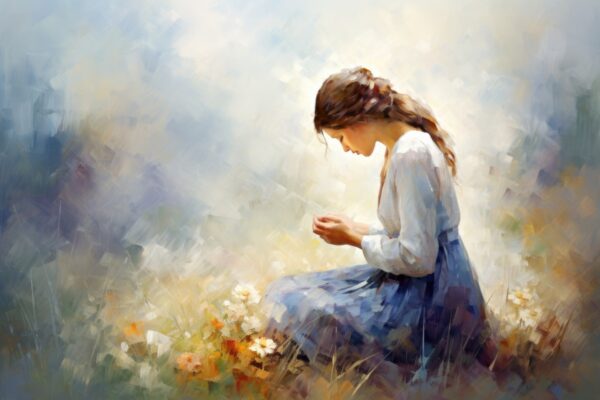For 18 years I have been privileged to work in traditional book publishing, first in the mainstream field with an emphasis on children’s books, and then as a freelancer working largely with Catholic and other Christian media. I have been welcomed into powerful narratives and introduced to the words and wisdom of men and women of tremendous faith. But it was the one project that broke this rule — the one that centered on a contemporary orthodox Jewish community in Silver Spring, Maryland — that has moved me the most.
In 2012, I was simultaneously reeling from the loss of my son Ethan to miscarriage and anxiously watching my belly grow as my next child — my lively, goofy, bighearted Henry — developed. A former co-worker sent me an email about a woman looking to self-publish a collection of pictures and memoirs about her son who had passed away five years prior. Feeling a kinship with this woman who had also lost a son, I agreed to take it on.
Want more Radiant? Sign up for our weekly newsletter!
Aviva Mordehais’ son, Shauli, was just 2 years old when he fell into a few inches of rainwater in the bottom of a pool. His parents were advised to admit him to a care facility since he would require a great deal of medical attention. Instead, they brought him home. And thanks to Shauli, the Mordehais’ home became a home and a refuge to hundreds, if not thousands, of volunteers who came to be with Shauli over the next 15 years.
My job was to organize the letters written by these volunteers, then format and edit them so they could be printed as a book. I never met Shauli, and to this day I’ve only met Aviva in person once. And yet, as I scrolled through her attachments on my laptop, sharing stories that took place over two hundred miles away in Brooklyn, New York, I came to know this boy and his family. I came to witness, and in some ways to be healed by, this incredible story of God’s grace.
Document after document spoke of a boy who was physically capable of so little and yet gave so much to his community. Young adults who grew up alongside him wrote of meeting their spouses through connections to Shauli, finding their vocations, and, more than anything else, they wrote of finding peace in his presence. There was something about his eyes, so many of them wrote, something about just being in the same room with him, whether they were reading or singing, praying or resting in the silence, washing him or helping to feed him. To be with Shauli was to be in the presence of something holy and profound.
Through the Mordehais’ hospitality and humility, their home became the centerpiece of the community. Through honoring the dignity of Shauli’s life, they taught others to appreciate the dignity of their own lives and the lives of those around them. By accepting the love and help of their community, they made space for chessed (“acts of loving-kindness”) to happen within their walls — walls they had to move to make space to care for Shauli — on a daily basis. And by taking the time to gather these letters into one place, they invited me and their future readers to meet and love Shauli — with the bonus of learning a few Hebrew words along the way. (There’s a glossary in the back of the book.)
The word “pro-life” doesn’t exist anywhere in those pages. Nor is there explicit mention of the spiritual or corporal works of mercy. But there is so much that is in line with what we believe as Catholics within the pages of Shauli’s story. The way charity and love were poured out — running in both directions — in this home is exactly what we are called to do as followers of Christ. I do not fall into the intended demographic for the book, but time and again I told Aviva: “We all need this book. The whole world needs this book.”
The book, “Song of a Pure Soul: The Inspiring Life of an Extraordinary Boy,” was recently published by Feldheim Publishers, and it’s available online and in Jewish bookstores. It’s being marketed to primarily Jewish audiences, but as one intimately familiar with every word, I can say with confidence that this is a story we all need to hear.
Part of me wonders why it’s taken this long for the book to hit shelves — we started working on it 10 years ago — but the wiser part of me can see that our culture needs this story now more than ever. We need a strong dose of hope. We need to see light in the darkness. We need to remember that we are all children of God and that, as Aviva writes in the dedication, “[He] guided us and helped us to continue. Without [God], we could not have done anything.”
Perhaps, like me, you sometimes operate within something of a Catholic bubble. It is good to have like-minded and like-hearted friends to encourage, inspire and evangelize us. But let’s not forget that we have a great deal in common with our Jewish brothers and sisters, who also lift their eyes to the mountains, to seek help from the Lord, “the maker of heaven and earth” (see Ps 121:1-2).
God is in all our stories, and we do well when we share them with those — all those — he puts on our paths.




